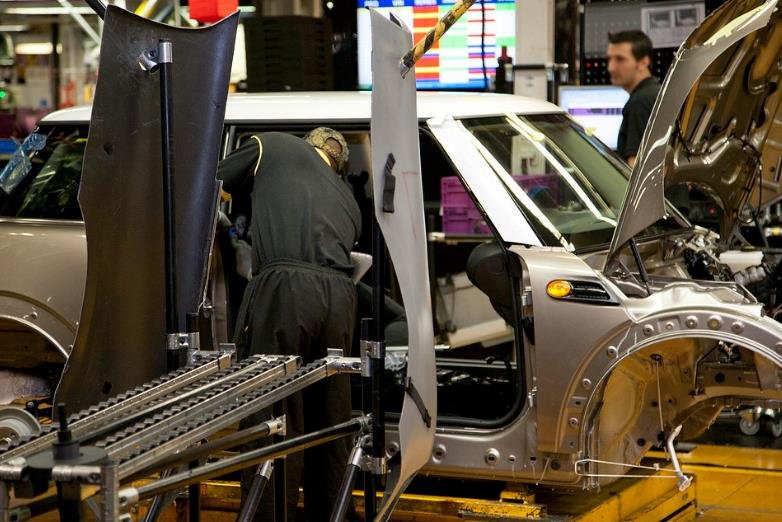Nigeria’s automotive industry, valued at $210 million, is struggling to keep pace with its African counterparts, such as Morocco, South Africa, and Egypt. Despite having a combined investment of over N500 billion, Nigeria’s vehicle production remains significantly lower than that of its peers. In 2023, Nigeria produced approximately 2,034 units of vehicles, accounting for about 0.04 percent of the country’s GDP. In contrast, Morocco, South Africa, and Egypt have established themselves as major players in the automotive sector, with substantial production volumes and contributions to their respective economies.
Morocco’s automotive industry has experienced remarkable growth, positioning itself as a leading player in the global market. In 2023, Morocco produced 535,825 units of vehicles, valued at $31.4 billion, contributing 24 percent to the country’s GDP. The success of Morocco’s automotive sector can be attributed to several factors, including government support, strategic investments, and a favorable business environment.

The Moroccan government has played a crucial role in fostering the growth of the automotive industry by offering subsidies of up to 35 percent for manufacturers to establish factories. Additionally, the expansion of ports, free zones, and rail infrastructure has facilitated the efficient movement of goods and attracted foreign investments. Over 250 car and components manufacturing companies, including Stellantis, Renault, and BYD, operate in Morocco, further strengthening the industry’s position.
Moreover, Morocco’s focus on sustainability and innovation has set it apart from other automotive hubs. The country has embraced the shift towards electric vehicles (EVs) and is preparing to become a major player in the EV market. With a production capacity expected to reach one million vehicles per year by 2025, Morocco’s automotive industry is poised for continued growth and success.
South Africa’s Automotive Dominance
South Africa is the continent’s second-largest automotive producer, with a production volume of 633,337 units in 2023, valued at $20 billion. The automotive sector contributes 5.3 percent to South Africa’s GDP, making it a vital component of the country’s economy. The success of South Africa’s automotive industry can be attributed to a combination of government initiatives, strategic investments, and a well-established manufacturing base.
The South African government launched the Motor Industry Development Programme (MIDP) in 1995 to encourage vehicle and component manufacturing through export. This program was succeeded by the Automotive Production and Development Programme (APDP), which aims to increase local content input and enhance the competitiveness of the industry. These initiatives have attracted major automotive companies, including BMW, Ford, Toyota, and Volkswagen, to establish manufacturing facilities in the country.
South Africa’s automotive industry is also supported by a robust supply chain and skilled workforce. The presence of numerous component manufacturers and suppliers has created a well-integrated ecosystem that supports the production of high-quality vehicles. As the industry continues to evolve, South Africa remains a key player in the global automotive market.
Egypt’s Growing Automotive Sector
Egypt’s automotive industry, while smaller than that of Morocco and South Africa, has shown significant growth and potential. In 2023, Egypt produced 23,754 units of vehicles, valued at $1.5 billion, contributing 0.31 percent to the country’s GDP. The Egyptian government has implemented several initiatives to attract investments and boost the automotive sector, including the establishment of free zones and incentives for manufacturers.
Prominent automotive companies, such as Bavarian Auto Group, El Nasr Automotive Manufacturing Company, and Mercedes Egypt, operate in the country, contributing to the industry’s growth. The government’s focus on developing infrastructure and creating a favorable business environment has also played a crucial role in attracting foreign investments.
Egypt’s automotive industry is poised for further growth, with plans to increase production volumes and expand its presence in the global market. The government’s commitment to supporting the sector and fostering innovation will be key to achieving these goals.
In conclusion, Nigeria’s automotive industry faces significant challenges in keeping pace with its African counterparts. While Morocco, South Africa, and Egypt have established themselves as major players in the global automotive market, Nigeria’s production volumes and contributions to the economy remain relatively low. To compete effectively, Nigeria must address the issues of low demand for made-in-Nigeria vehicles and over-reliance on imported second-hand vehicles. By implementing strategic initiatives and fostering a favorable business environment, Nigeria can unlock the potential of its automotive industry and achieve sustainable growth.
